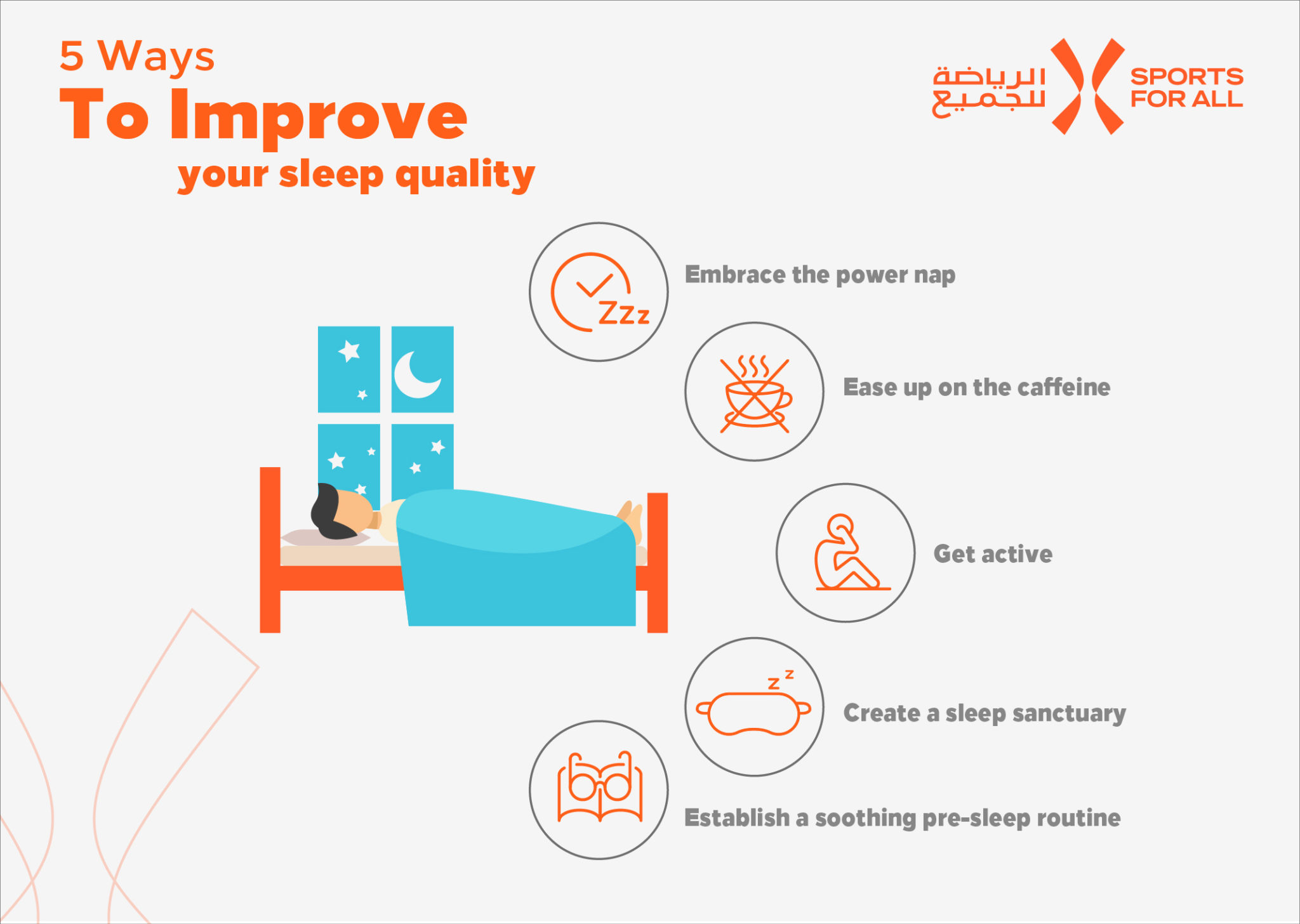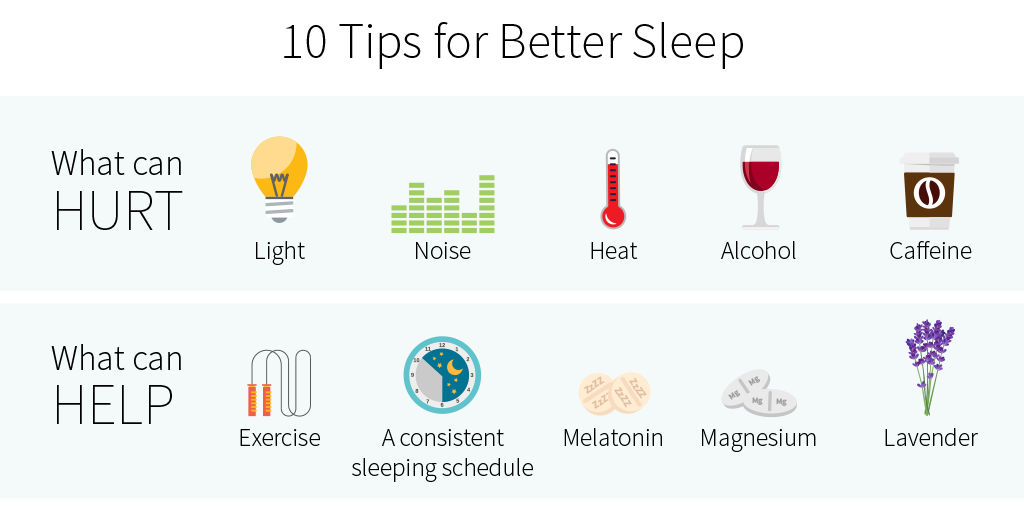To improve sleep quality, maintain a consistent sleep schedule and create a relaxing bedtime routine. Establish a comfortable sleep environment and limit screen time before bed.
Engage in regular exercise and manage stress levels for better sleep. Are you struggling to get a good night’s sleep? Many people experience difficulties with falling asleep or staying asleep, impacting their overall well-being. Thankfully, there are simple yet effective strategies you can implement to enhance your sleep quality.
By making a few adjustments to your lifestyle and daily habits, you can experience restful and rejuvenating sleep each night. We will explore practical tips and techniques to help you achieve better sleep quality and wake up feeling refreshed and energized. Let’s delve into how you can improve your sleep hygiene and create a conducive environment for a peaceful night’s rest.
Establishing A Bedtime Routine
Establishing a bedtime routine can significantly improve your sleep quality. A routine helps signal to your body and mind that it’s time to unwind and prepare for sleep. By incorporating consistent habits into your evening, you can create an environment conducive to a restful night’s sleep. Here are three essential components of an effective bedtime routine:
Creating A Relaxing Environment
The environment in which you sleep plays a crucial role in the quality of your rest. To create a relaxing ambiance, consider the following:
- Keep your bedroom cool, quiet, and dark to promote a calm and peaceful atmosphere.
- Invest in a comfortable mattress and pillows that provide adequate support for your body.
- Use soothing scents, such as lavender or chamomile, to create a calming atmosphere.
Avoiding Screens Before Bed
The blue light emitted by screens can disrupt your body’s natural sleep-wake cycle, making it harder to fall asleep. To optimize your sleep, try the following:
- Avoid using electronic devices, including smartphones, tablets, and computers, at least one hour before bed.
- Instead of using screens, engage in relaxing activities like reading a book or listening to calming music.
- If you must use screens, adjust the settings to reduce blue light emission or use blue light-blocking glasses.
Establishing A Consistent Sleep Schedule
By going to bed and waking up at roughly the same time each day, you can train your body to establish a natural sleep-wake rhythm. Here are a few tips to help you maintain a consistent sleep schedule:
- Set a regular bedtime that allows for an adequate amount of sleep, usually between 7-9 hours for adults.
- Avoid napping during the day, as it can disrupt your ability to fall asleep at night.
- Stick to your sleep routine, even on weekends or days off, to help regulate your body’s internal clock.
Establishing a bedtime routine that incorporates these elements can serve as a foundation for better sleep quality. Remember, consistency is key when it comes to bedtime habits. By prioritizing a relaxing environment, minimizing screen time before bed, and adhering to a consistent sleep schedule, you can improve the quality of your sleep and wake up feeling refreshed and rejuvenated each morning.
Improving Sleep Environment
Comfortable Bed And Bedding
- Invest in a quality mattress for proper support.
- Choose soft, breathable sheets and cozy blankets.
- Ensure comfortable pillows that support your neck.
Controlling Light And Noise
- Use curtains or blinds to block out light.
- Consider using a white noise machine to mask disruptive sounds.
- Avoid electronic devices emitting blue light before bed.
Regular Exercise And Physical Activity
Regular exercise and physical activity can enhance sleep quality. Engaging in regular physical activity helps regulate your sleep pattern and improve the overall quality of your sleep. Incorporating at least 30 minutes of moderate exercise into your daily routine can significantly contribute to better sleep quality.
Regular exercise and physical activity play a crucial role in improving sleep quality. Finding the Right Time to Exercise can significantly impact your sleep. Balancing Intensity and Duration is key to reaping the sleep benefits of exercise.Finding The Right Time To Exercise
Morning workouts can boost energy levels during the day. Afternoon exercise can help alleviate stress and improve sleep later. Evening exercise can signal your body it’s time to wind down for rest.Balancing Intensity And Duration
Moderate intensity workouts are ideal for sleep improvement. Short, high-intensity workouts in the morning can enhance daytime alertness. Balancing exercise duration can prevent overstimulation close to bedtime.
Credit: medium.com
Diet And Sleep Quality
A good night’s sleep is crucial for overall well-being and optimal health. Many factors can affect the quality of sleep, and one important aspect is diet. What you eat and drink before bed can have a significant impact on your sleep quality. In this article, we will explore two key areas related to diet and sleep quality: avoiding heavy meals before bed and choosing sleep-friendly foods.
Avoiding Heavy Meals Before Bed
When it comes to better sleep quality, it is essential to avoid heavy meals close to bedtime. Eating large meals can cause discomfort and affect your ability to fall asleep, as your body works to digest the food. It is best to have your dinner at least two to three hours before you plan to go to bed. This will allow enough time for digestion, reducing the chances of discomfort or indigestion that can keep you awake. Additionally, it is advisable to limit your intake of spicy, greasy, and fatty foods as they can exacerbate sleep disturbances.
Choosing Sleep-friendly Foods
What you choose to eat can also play a role in promoting better sleep quality. Incorporating sleep-friendly foods into your nightly routine can help relax your body and mind, making it easier to fall asleep and stay asleep. Here are some key foods that are known to aid in better sleep:
Foods that contain tryptophan:
- Turkey
- Chicken
- Nuts
- Seeds
- Legumes
Foods high in magnesium:
- Spinach
- Kale
- Almonds
- Avocado
- Bananas
Foods rich in vitamins B6 and B12:
- Fish
- Eggs
- Milk
- Fortified cereals
These foods help promote the production of serotonin, a neurotransmitter known for its calming effects on the brain. Including them in your evening meals or snacks can contribute to a better night’s sleep. In addition to these specific food choices, it is important to avoid caffeine and alcohol close to bedtime, as both can disrupt your sleep patterns.
To sum it up, a well-balanced diet that includes sleep-friendly foods and avoids heavy meals before bed can significantly improve the quality of your sleep. By making simple dietary adjustments, you can create a bedtime routine that supports a restful night’s sleep and promotes overall well-being.
Managing Stress And Anxiety
Managing Stress and Anxiety is crucial for improving sleep quality. High levels of stress and anxiety can negatively impact your ability to fall and stay asleep, leading to sleep disturbances and insomnia. Here are some effective strategies to help you manage stress and anxiety, promoting better sleep quality.
Practicing Relaxation Techniques
Engaging in relaxation techniques can help calm your mind and body, making it easier to unwind and prepare for a restful night’s sleep. Deep breathing exercises, progressive muscle relaxation, yoga, and meditation are excellent practices to incorporate into your daily routine. These techniques can help reduce stress and promote a sense of tranquility, preparing your body for a peaceful night’s sleep.
Seeking Support And Professional Help
It’s essential to remember that seeking support is a sign of strength. Whether it’s confiding in a trusted friend or family member or seeking professional help from a therapist or counselor, reaching out for support can alleviate feelings of stress and anxiety. Therapists can provide coping strategies and tools to manage stress and anxiety effectively, ultimately improving your sleep quality.

Credit: www.somnologymd.com

Credit: sportsforall.com.sa
Frequently Asked Questions Of Tips For Better Sleep Quality
How Can I Increase My Sleep Quality?
To improve sleep quality, establish a consistent sleep schedule, avoid caffeine and electronics before bed, create a calming bedtime routine, create a comfortable sleep environment, and manage stress through relaxation techniques or therapy.
What Is The 10 3 2 1 0 Rule For Sleep?
The 10-3-2-1-0 rule for sleep suggests: 10 hours before bed, no caffeine; 3 hours, no large meals; 2 hours, no work; 1 hour, no screens; 0, lights out.
How Can I Improve My Sleep Quality Score?
Improve your sleep quality score by establishing a consistent sleep schedule. Prioritize a comfortable sleep environment with minimal distractions. Practice relaxation techniques before bed, such as deep breathing or mediation. Limit screen time and avoid stimulants close to bedtime. Exercise regularly but not too close to bedtime.
How Long Does It Take To Improve Sleep Quality?
Improving sleep quality varies, but it can take a few weeks to see positive changes. By developing a regular sleep routine, maintaining a comfortable sleep environment, and practicing sleep hygiene, you can enhance your sleep quality over time.
Conclusion
Adopting these lifestyle changes and incorporating these tips into your daily routine can greatly improve your sleep quality. By creating a serene sleep environment, establishing a consistent sleep schedule, practicing relaxation techniques, and avoiding stimulating activities before bed, you can enhance the duration and quality of your sleep.
Prioritizing your sleep health is essential for overall well-being and leads to increased productivity and a happier, healthier life. Sweet dreams!
